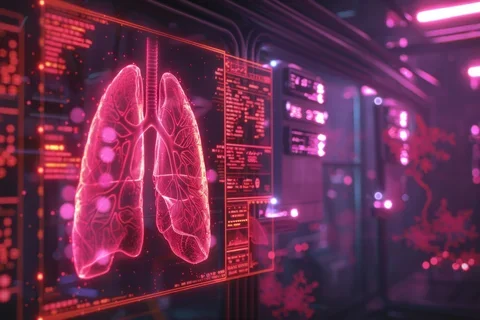EFIRM Liquid Biopsy Research Laboratory: Early Lung Cancer Assessment

While low-dose computed tomography (CT) screening reduces lung cancer mortality, it also leads to the discovery of an estimated 2 million indeterminate pulmonary nodules (IPNs), which are largely benign but can have malignancy potential. There is an urgent need for methods to better differentiate between benign disease and those requiring invasive diagnostic testing. This Phase 2 project of the EFIRM-Liquid Biopsy Research Laboratory (E-LBRL) aims to advance liquid biopsy for early lung cancer assessment of IPNs. The project focuses on two essential frontiers:
- The development (discovery and validation) of comprehensive personalized cancer-specific omics targets for early detection.
- The advancement and refinement of technologies capable of detecting the earliest shedding of these circulating targets.
This initiative leverages a partnership between lung cancer biologists, clinicians, biostatisticians, and industry engineers, converging on the novel EFIRM-Liquid biopsy (eLB) technology. Phase 1 of E-LBRL discovered ultrashort and single-stranded cell-free DNA (uscfDNA), which represent global changes in cancer and are optimal for the eLB platform. The core hypothesis is that signals from malignancy-associated Broad Range cfDNAs (BRcfDNA) can be integrated with malignancy-associated somatic mutations, differentiated methylated regions, miRNA, and radiomic imaging into an integrated model termed IPN.CA. This model aims to permit the earliest cancer assessment of IPN. The project will also work with industry partners and a Biomarker Reference Lab to convert individual eLB assays to CLIA-qualified multiplex arrays, aiming for the eLB-IPN.CA and its associated inputs to become a clinically deployable Laboratory Developed Test (LDT).
Contact PI: William Hsu; David T Wong
Funding Source: NIH NCI



